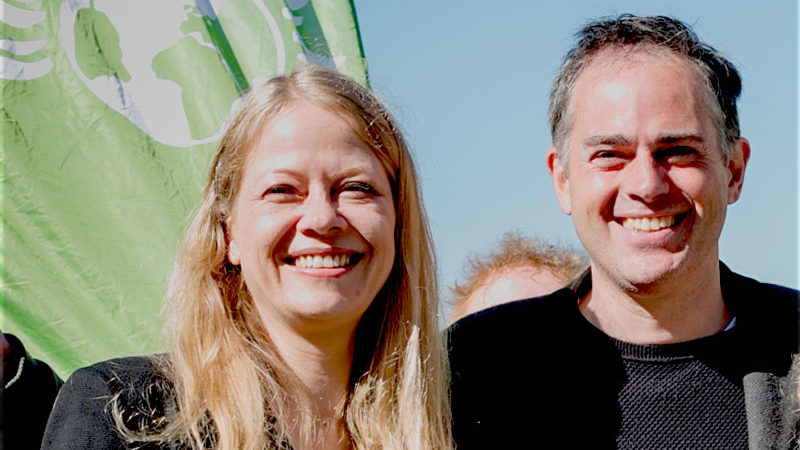The leadership election could prove an opportunity for radial debate on the Greens future, or a coronation of the status quo. Reece Stafferton writers.

Last week Caroline Lucas announced she would not be standing for re-election as Green Party leader after two years in a job-sharing capacity with newly-elected Lambeth councillor, Jonathan Bartley.
The Green Party holds internal leadership, deputy leadership and executive committee elections every two years.
The previous leadership election was controversial as it appeared to be a coronation of Lucas, who was previously both principal speaker and leader. She and other Greens, such as Sian Berry, spearheaded reforms to scrap their former collective leadership model in place of the more mainstream leader and deputy leader roles.
After nominations opened, current co-leader Jonathan Bartley announced he was standing for re-election alongside Sian Berry.
Berry is well-known in London where she has been a councillor in Camden, a member of the London Assembly and candidate for Mayor. The two would both be from London, which has raised fears that they reinforce the party’s white, middle-class image.
Bartley’s candidacy is likely to be welcomed by many of the party’s left, as he is a member of the internal eco-socialist group known as ‘Green Left’. However, the group is openly criticised by many Greens as being overly sympathetic to Jeremy Corbyn and the Labour Party.
Berry also sits on the management committee for Compass – a progressive think tank previously affiliated to Labour – which could indicate a renewed push for the Progressive Alliance strategy and/or further cooperation with Labour.
No other candidates have announced their intention to run, but the bookies favour former deputy leader Shahrar Ali, who did the job alongside Amelia Womack between 2014 and 2016.
Ali has hinted he may run through a Facebook post stating:
“I’ve been inundated with pleas to stand for the leadership of the Greens these past few days and weeks… They would be right that I do feel ready to lead the party; but is the party ready for me? Not because I’m black but because I’m Green.
“If I do decide to run it won’t be for the sake of producing a contest. It will be in order to win.”
He also stated his opposition to “cackhanded attempts to broker power in a broken system.”
His words are certainly inspiring, and with his hostility to much of the current party’s strategies and structures he could be a radical alternative to the other candidates.
Cleo Lake (Bristol Lord Mayor) and Molly Scott Cato (MEP for South West England) were favourites but have both recently quashed the idea on Twitter and Facebook, respectively.
As for the deputy leader contest, Womack has announced she would be re-running, while Aimee Challenor (Equalities Spokesperson) and Andrew Cooper (Councillor on Kirklees Council from 1999) have also thrown their hats in the ring.
I am excited to officially announce that I will be rerunning as deputy leader in the upcoming @TheGreenParty elections.
— Amelia Womack (@Amelia_Womack) June 7, 2018
If elected, Challenor would be the first openly Trans deputy leader in any major UK party.
This contest could go either way: We might see a fierce debate between some of the party’s most prominent individuals. Or the election will resemble the 2016 leadership race – a missed opportunity for radical discussion inside one of Britain’s largest political parties.
Reece Stafferton is a Green political activist based in Leicester. He tweets here.
Left Foot Forward doesn't have the backing of big business or billionaires. We rely on the kind and generous support of ordinary people like you.
You can support hard-hitting journalism that holds the right to account, provides a forum for debate among progressives, and covers the stories the rest of the media ignore. Donate today.




One Response to “Green Party leadership race – revolution or damp squib?”
White Middle Class privelidge is fine though? Two Black guys and Northerner Walk into a Pub. – RogersLongHairBlog
[…] Roger Glyndwr Lewis • a few seconds ago […]